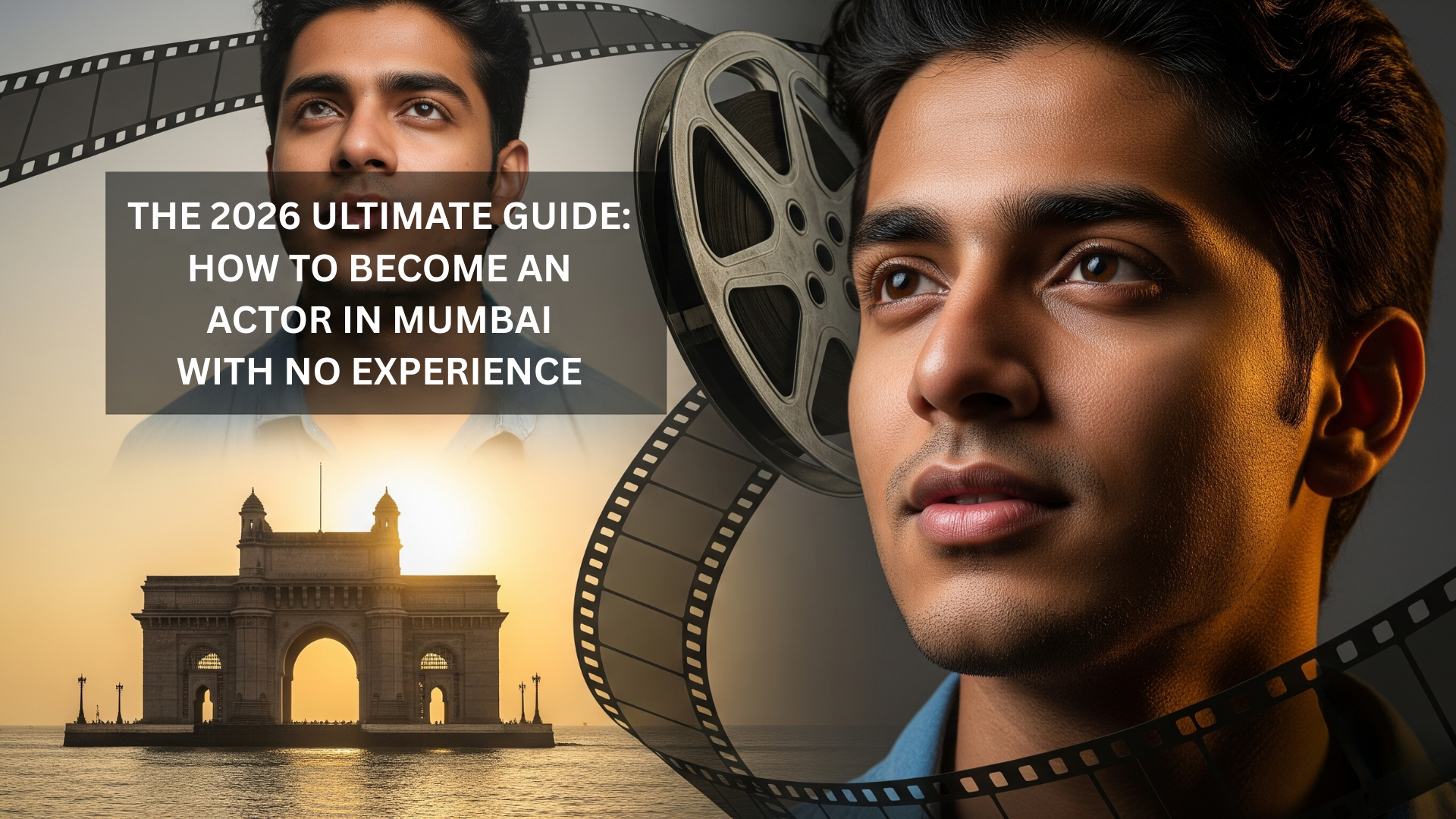For millions across India, the dream of becoming an actor is linked with the city of Mumbai. The city pulses with the energy of cinema. It’s a place where aspiring artists arrive with cinematic ambitions, drawn by the powerful allure of Bollywood. This guide is for you. It’s for the person sitting in Bhopal or Lucknow with a dream ready to take flight.
Let’s talk real. The journey to a sustainable acting career is a marathon, not a sprint. The industry is built on passion, yes, but it’s navigated through a mix of strategy and resilience. The glamorous facade often hides a fiercely competitive and complex world. Here, talent alone isn’t enough. You’ll face endless rejections, moments of self-doubt, and times when your pockets feel empty. But that’s part of the hustle. This guide is designed to be your honest, actionable roadmap for this journey. It’s here to empower you with the knowledge to build a professional foundation. That way, you can arrive with confidence and clarity, using a safe and verified platform like Dazzlerr as your trusted partner.
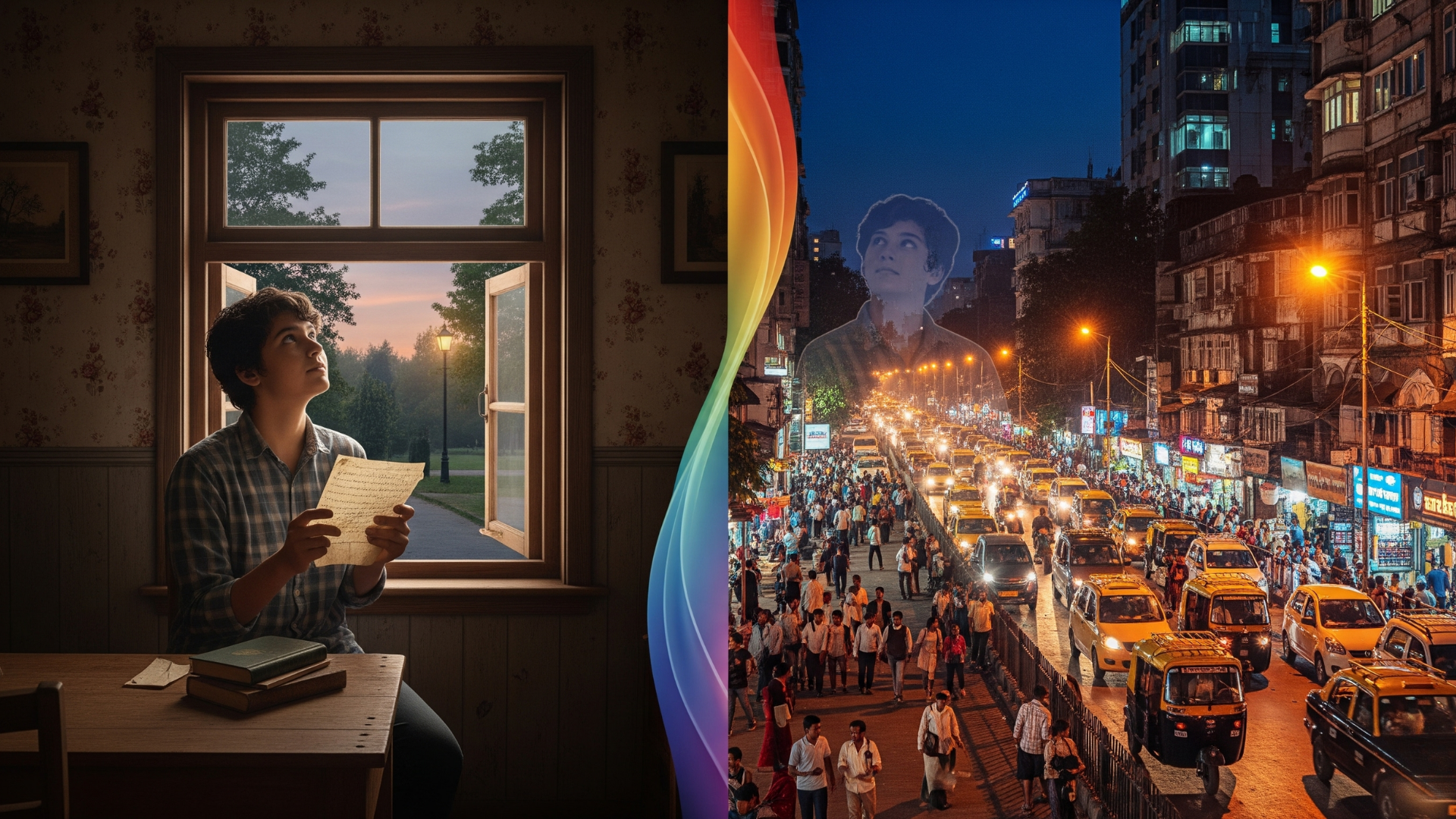
The Foundation: Building Your Craft Before You Arrive
For a newcomer, the most crucial step is to understand that acting is a craft. You should hone this craft before you even set foot in Mumbai. This is how you transform from a passive dreamer into a proactive professional. It’s how you show up ready to work, not just ready to wish.
Training is not just for those who lack raw talent; it’s a non-negotiable step toward professionalism. It provides a structured environment for developing core skills and learning the discipline required to convert emotions into a repeatable performance. For example, major institutions like Whistling Woods International offer extensive degree programs with tuition fees that can reach up to ₹19.80 lakhs. They state that no prior acting experience is required for entry. This proves the point: the emphasis is on the training itself, not on past credits.
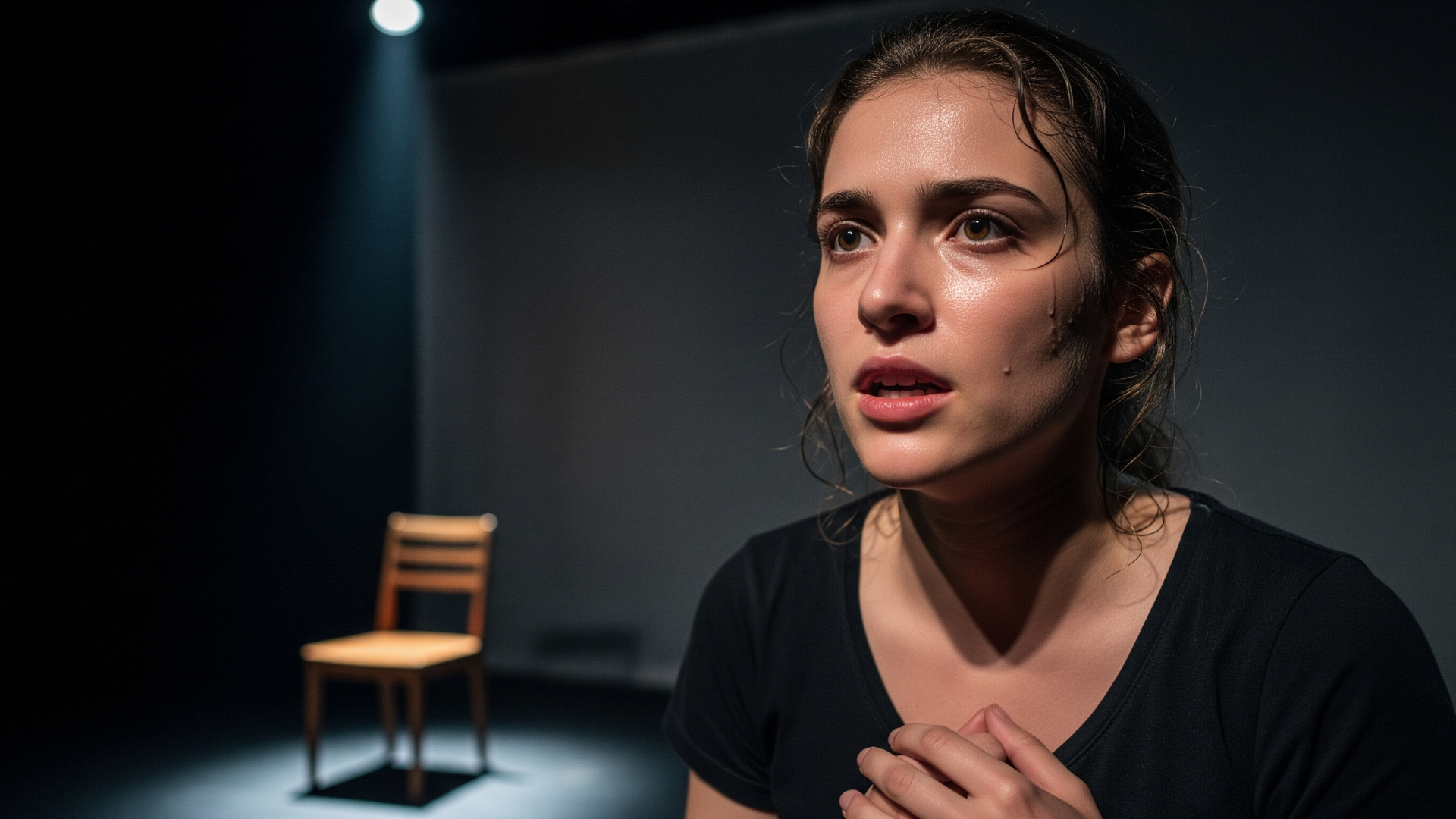
You can begin your journey from your hometown right now. A foundational and highly recommended path is to join a local theatre group. Theatre is the original acting boot camp. It provides a comprehensive training ground, building skills in improvisation, voice modulation, and emotional memory. Engaging with a local group allows you to gain invaluable stage experience without the initial financial burden of relocating. This experience is also invaluable for building a network of like-minded individuals and getting real-time, unfiltered feedback on your performance.
In addition, the rise of digital platforms has made quality training more accessible than ever. Enroll in online acting workshops. They offer a flexible and affordable alternative to in-person classes. For example, a reputable institution like Anupam Kher’s Actor Prepares offers a one-month foundation course for as little as ₹12,500 online. These short-term courses are a perfect entry point for beginners. Beyond structured classes, self-study is a powerful and free tool. This involves reading plays, analyzing performances in classic cinema, and studying different genres. This foundational work is essential to your growth. To learn more about specific training options, check out our guide on Top Acting Workshops and Theatre Groups in Mumbai
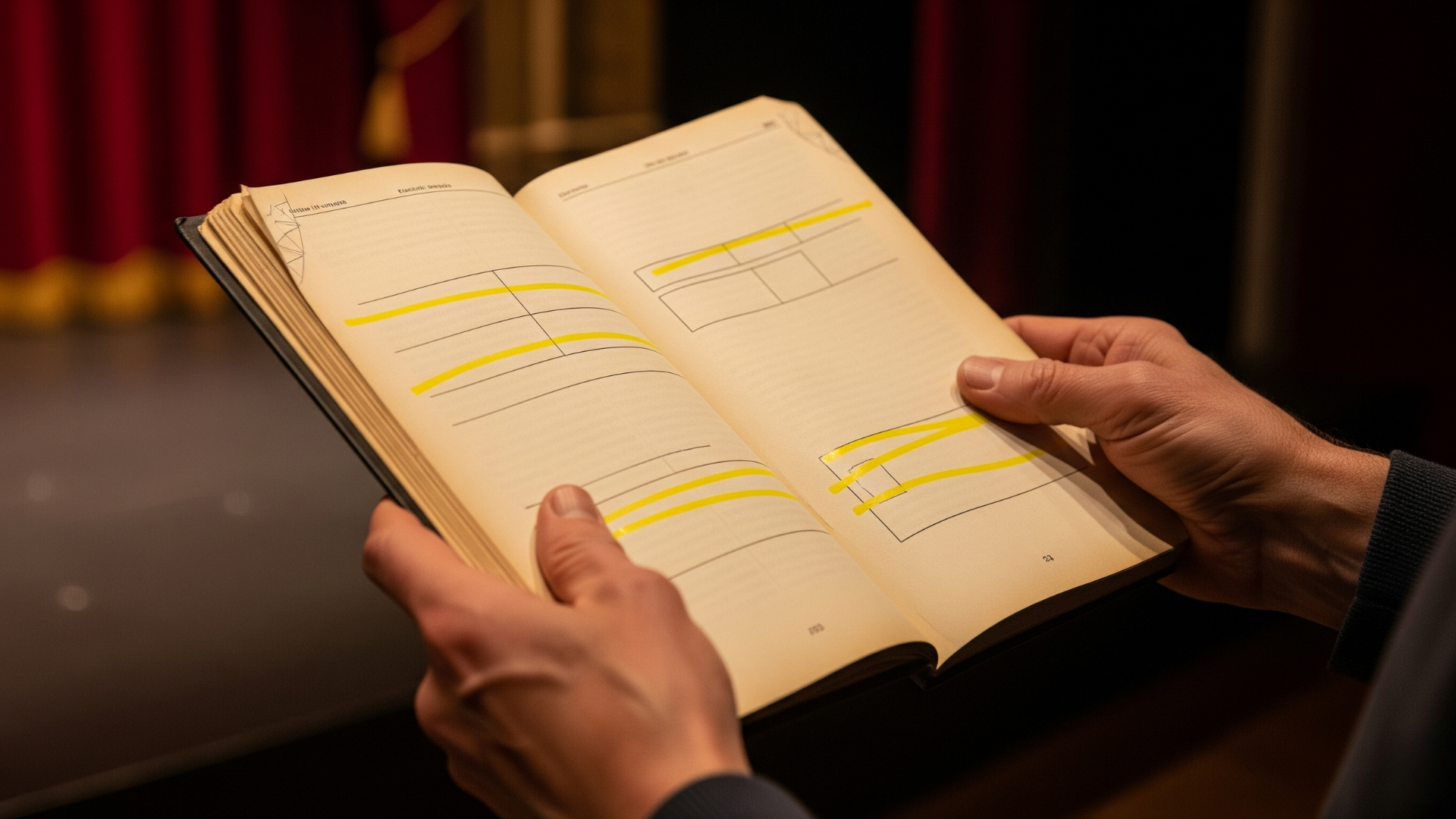
Your Actor’s Toolkit: Preparing Your Essential Materials
The actor’s portfolio serves as their professional “resume” and their first impression on casting directors. For a fresher with no professional credits, this toolkit must be meticulously crafted to showcase your potential, passion, and professionalism. The portfolio isn’t a record of past successes, but a tangible reflection of your dedication and initiative. To get a detailed look at how to build this kit, you can read our full guide on How to Build an Impressive Acting Portfolio in Mumbai.

The Headshot: Your Visual First Impression
A headshot is more than just a photograph; it is a vital marketing tool. Industry experts are unanimous that a simple phone selfie will not suffice. A professional headshot must be a high-resolution, well-lit image taken by a photographer with experience in the film and television industry. Casting directors look for authenticity, a natural expression, and “eyes that speak”—a confident, engaging gaze that draws them in.
It is advised to have a selection of shots. These should include a close-up that focuses on facial features and a full-body shot to show the overall physique. For styling, simple, solid-colored clothing and minimal makeup are recommended. This ensures the focus remains on the actor’s natural look and genuine emotion.

The Acting Resume: Your Written Story
The acting resume, or biodata, should be a concise, one-page document. It must be easy to read and professionally formatted. For a newcomer, the absence of professional credits can be intimidating, but this is where the strategic value of the document comes into play. Instead of focusing on a lack of experience, use the resume to tell a compelling story of passion and commitment.
The key is to heavily populate the “Education and Training” section. List every online workshop, theatre class, and personal coaching session. This demonstrates a clear dedication to the craft. A robust “Special Skills” section is another crucial differentiator. This is an opportunity to list unique abilities such as fluency in multiple languages, dance forms, martial arts, or sports. These skills can make an actor stand out for specific roles. The document must also include basic physical details like height, weight, hair, and eye color. Finally, save the final resume as a PDF to ensure formatting consistency across different computers.
The Demo Reel: The Centerpiece
A demo reel is a short video that provides a preview of an actor’s on-camera abilities. While an aspiring actor may not have professional footage, creating one from scratch is a powerful display of initiative and resourcefulness. This DIY approach is a legitimate way to impress casting directors. They are used to evaluating actors from self-taped performances.
The best practice is to shoot original content, such as a compelling monologue or a short scene with a friend. The footage should highlight a defined “brand” or objective and demonstrate versatility by showcasing different tones and emotions. The reel should be concise, lasting between 90 seconds to three minutes. It is critical to start the reel with the absolute best footage to immediately grab the viewer’s attention.
The Mumbai Move: A Practical Survival Guide
Moving to a new city, especially a metropolitan hub like Mumbai, presents significant financial and logistical challenges. The fear of Mumbai being an expensive city is often a major source of anxiety for newcomers. But let’s be real—the true affordability lies in shared living and a strategic, frugal lifestyle. This is the part of the journey where you learn to be resourceful. For a full breakdown, see our guide on The Aspiring Actor’s Budget.
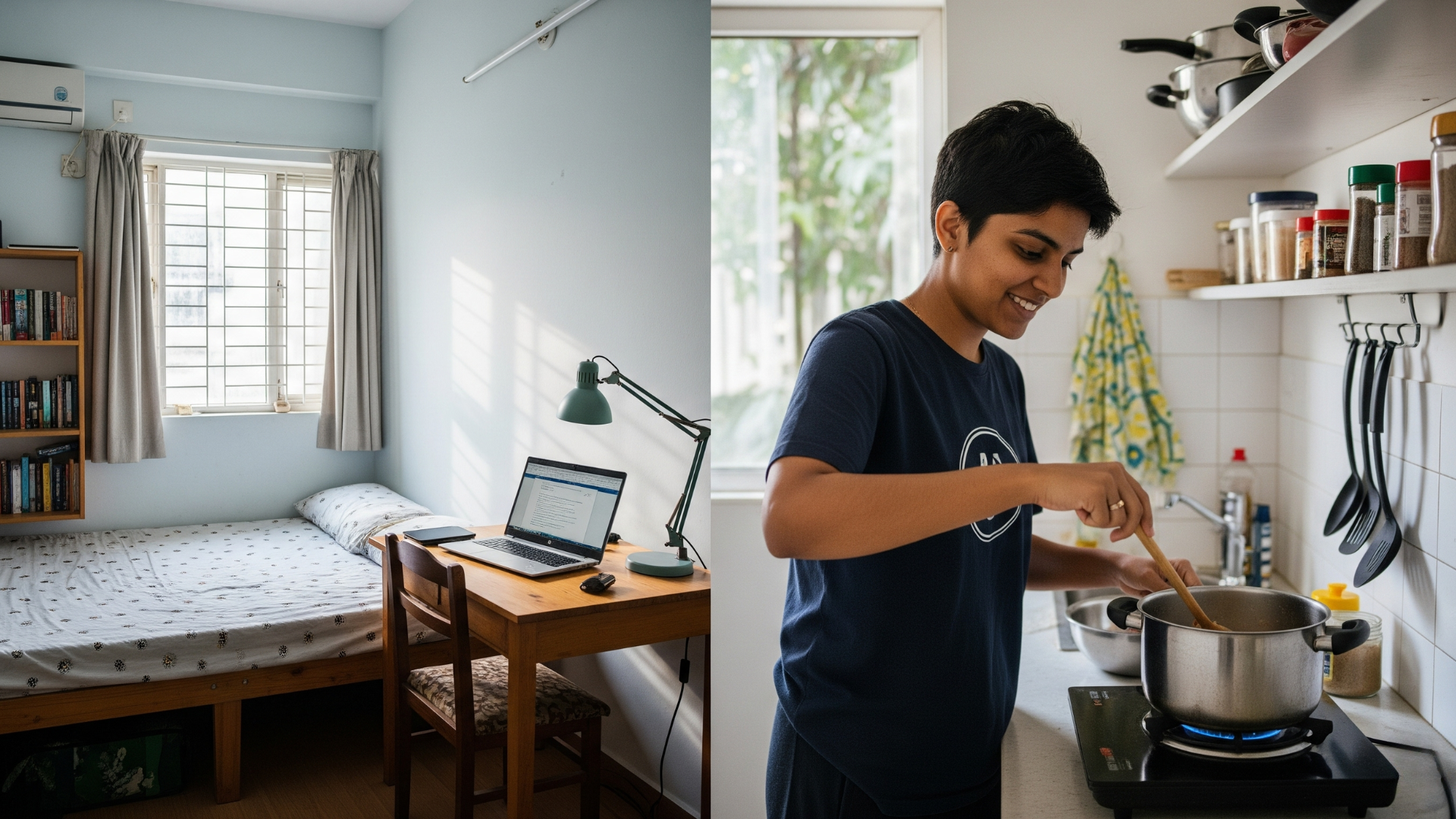
Where to Live: A Breakdown of Affordable Suburbs
Mumbai’s entertainment industry is largely concentrated in the Western suburbs. The most popular areas with aspiring actors are Andheri West, Versova, and Goregaon. They are close to major production houses and casting agencies. While the rent for a private 1BHK apartment in these areas can be very high, the realistic option for a fresher is shared accommodation. Paying guest (PG) accommodations offer a significantly more affordable entry point, with rents ranging from ₹4,000 to ₹10,000 per month. This allows you to live within walking or short auto-rickshaw distance of key industry locations while keeping your primary expense in check.
Budgeting: A Realistic Financial Breakdown
A realistic monthly budget for an aspiring actor must account for both initial, one-time expenses and recurring costs. The monthly budget should be broken down into core necessities, with the understanding that every expense is a choice.
| Category | Estimated Monthly Expense (in ₹) | Notes |
|---|---|---|
| Rent (Shared PG/Flat) | ₹4,000 – ₹10,000 | Highly dependent on location, sharing arrangement (private vs. triple), and amenities. The most significant variable for a fresher. |
| Food (Cooking/Tiffin) | ₹3,000 – ₹6,000 | Cooking at home or opting for tiffin services is significantly cheaper than dining out. |
| Transportation | ₹1,000 – ₹2,000 | Public transport (local trains, buses, metro) is highly affordable with a monthly pass. Ola/Uber can add up quickly. |
| Utilities (Electricity/WiFi) | ₹800 – ₹2,000 | Varies with consumption and type of service. |
| Mobile & Communication | ₹300 – ₹500 | Essential for staying connected and receiving updates. |
| Personal & Miscellaneous | ₹2,000 – ₹5,000 | Includes toiletries, laundry, and other small, day-to-day purchases. |
| Career Development Fund | ₹2,000 – ₹5,000 | A crucial component for investing in new headshots, workshops, or acting classes. |
| Total Monthly Budget | ₹13,100 – ₹30,500 | A bare-bones, frugal existence is possible at the lower end of this range. |
This table provides estimated ranges for a single person. You can adjust it based on your lifestyle choices and financial discipline. This breakdown demonstrates that a frugal, strategic life is financially attainable. The key is to manage major costs, such as rent and food, by choosing shared accommodations and home-cooked meals. This allows you to dedicate more of the budget to career development, which will ultimately drive progress.
Getting Around: Navigating the City
Navigating Mumbai’s sprawling network of local trains, metro lines, and buses is an essential survival skill. The local train network is the city’s lifeline. It has three main lines: Western, Central, and Harbor. They are fast, highly connected, and incredibly affordable. Similarly, the metro provides a smooth and efficient way to travel, particularly on the Versova-Ghatkopar line, which connects several key actor hubs. A monthly bus or train pass is a smart investment, often costing as little as ₹300 per month. For added convenience, digital tools like the m-Indicator and Chalo apps can be indispensable for checking routes and real-time bus tracking.
Safety is also a paramount concern for newcomers. For female artists, a few simple precautions can make a significant difference. You should always sit in the designated ladies’ compartments on trains and buses. For night travel, rely on verified ride-sharing apps like Uber or Ola.
The Hustle: Finding Your Type and Getting Noticed
The modern casting process has undergone a significant transformation. The industry has shifted from physical casting calls to digital platforms and self-taped auditions. This has democratized the process, providing freshers with an unprecedented level of access to opportunities. Knowing where to look is half the battle; knowing how to get noticed is the other.
Finding Your “Type” or “Brand”
Before you even start looking for auditions, you need to answer a simple but crucial question: “What’s my type?” or “What’s my brand?” Casting directors aren’t looking for a blank slate; they’re looking for a specific fit for a specific role. Your “type” isn’t about boxing yourself in; it’s about understanding how the industry sees you. Are you the serious hero, the friendly neighbor, the quirky best friend, or the witty villain? Your headshots, resume, and reel should all speak to this. It’s about being authentic and focusing on the roles you’re most likely to be cast in.
The Hustle: Where to Look for Legitimate Auditions
Online platforms are now the primary hub for audition notices. A verified platform like Dazzlerr serves as a central, curated source for legitimate opportunities. It shields you from the endless and often risky searches that can dominate a fresher’s time. Besides such platforms, casting directors have a strong online presence, especially on social media. Aspiring actors should follow legitimate casting houses on platforms like Instagram. Many post open calls and updates there. Some of the well-regarded casting agencies and directors mentioned in industry resources include Mukesh Chhabra Casting Co. (MCCC), Yashraj Casting Office, Casting Tree, and Studio 60.
Networking, when done correctly, remains a powerful tool. It is not about begging for work but about building professional relationships. You can do this by attending industry events, film festivals, acting workshops, and theatre performances. This professional engagement can lead to valuable connections and insights.
What to Expect: The Audition Room and Self-Tape
The audition itself has evolved, with self-tapes becoming the most common format. For a newcomer, understanding the technical and performance aspects of a self-tape is essential. These modern auditions require a basic setup with clear lighting, good audio, and a clean, neutral background. Your ability to deliver a professional-looking and sounding self-tape can make the difference between being noticed and being passed over. For a detailed breakdown of this process, read our guide on Your Ultimate Self-Tape Checklist.
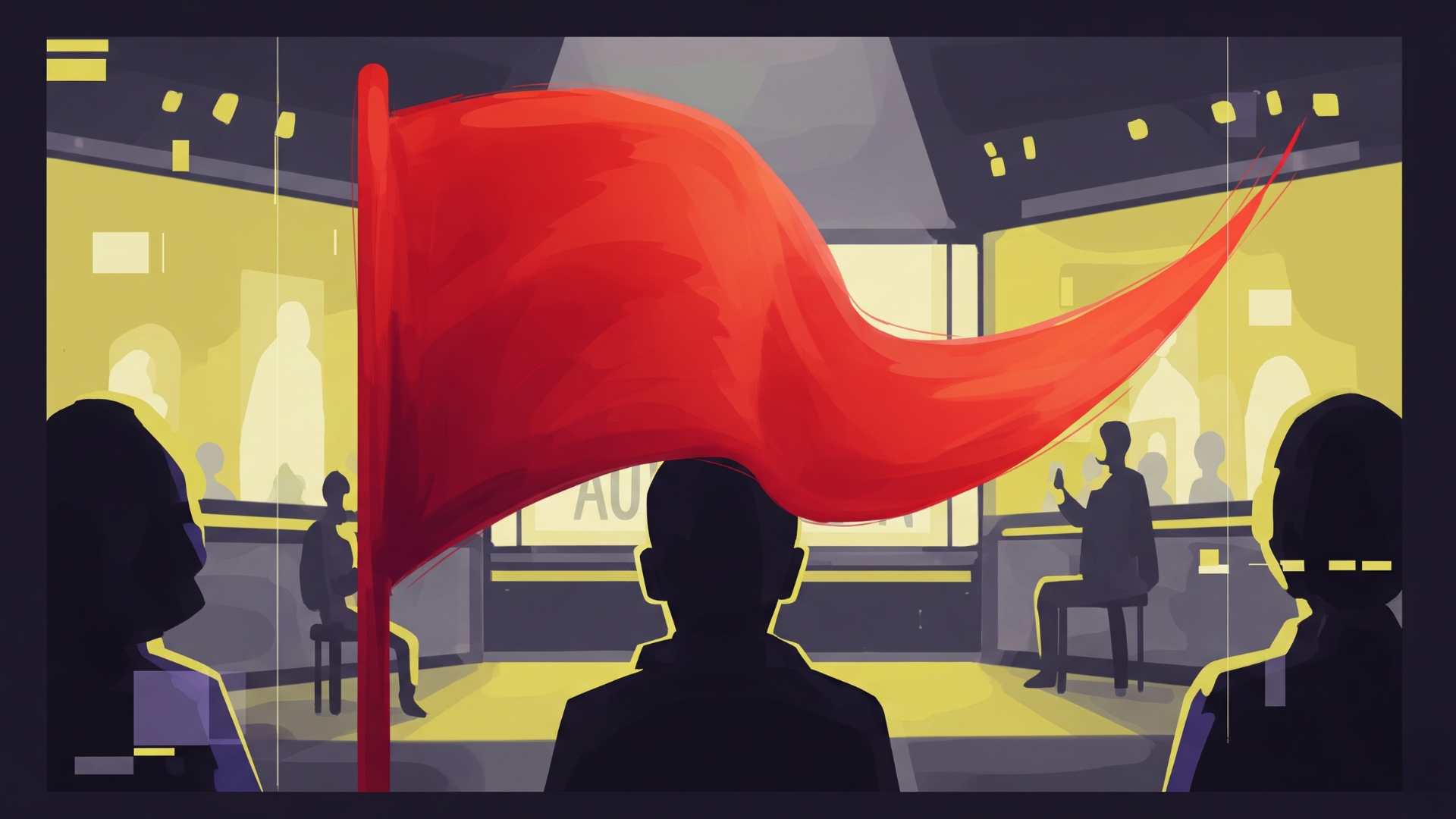
Staying Safe – How to Identify and Avoid Scams
Mumbai’s entertainment industry, with its high-stakes environment and constant influx of new talent, is unfortunately also a magnet for exploitation. Building trust is paramount, and a critical part of the journey is not only pursuing opportunities but also learning to identify and avoid the dangers. The ability to recognize red flags and protect yourself is a crucial skill that will save you from both financial loss and emotional trauma.
Legitimate casting agencies and production houses are guided by a few core professional principles, and any deviation should be treated as a major red flag.
Red Flag: Anyone Asking for Money for an Audition or Role.
This is the most common and clear sign of a scam. A legitimate casting director or agency will never ask you to pay a fee for an audition, a script, or for a guaranteed role. Their revenue comes from the production house, not the talent. Any request for money under the guise of “registration fees” or “portfolio charges” for a specific role is a scam.
Red Flag: Vague Job Descriptions or Unprofessional Communication.
A professional casting call will always provide a clear and detailed description of the character, the project (film, TV serial, ad), and the production company. If the communication is overly casual, uses unprofessional language, or is sent from a generic email address (e.g., Gmail, Yahoo) instead of a company domain, be wary.
Red Flag: “Auditions” Held in Inappropriate Locations.
A legitimate casting call will always be held at a verified office, a professional studio, or a public space. Auditions held in private or secluded locations, such as a hotel room or a private residence, should be immediately avoided. Your safety is paramount, and a professional environment ensures a transparent and ethical process.
Red Flag: Unrealistic Promises.
No legitimate agent or casting director can guarantee you a role. Their job is to find the best talent for a part. Promises of overnight stardom or a guaranteed lead role in a major film are designed to prey on your hopes and should be treated with extreme skepticism.
The industry is full of stories about talented people being asked to do strange or uncomfortable things in an audition. This isn’t just about financial scams; it’s about protecting your dignity. Remember that you have the right to say no to any request that makes you uncomfortable, no matter who is making it. Your dream of acting should not come at the cost of your self-respect. A legitimate and safe platform like Dazzlerr is a vital shield against both overt scams and unprofessional practices.
Your Journey Starts Now
The journey to becoming an actor in Mumbai is a transformative experience defined by strategic preparation and unwavering commitment. It’s a journey where every rejection teaches you resilience, and every small victory fuels you forward. The research presented in this report dismantles the myth that a fresher is a blank slate; on the contrary, your greatest asset is your ability to take ownership of your training, your portfolio, and your financial plan. You have the power to turn a lack of experience into a powerful narrative of ambition and initiative.
The roadmap to success is clear:
- Build Your Craft: Begin your training now, whether through online workshops or local theatre, and build a strong foundation of skills.
- Create Your Toolkit: Meticulously craft a professional portfolio that showcases your dedication and unique abilities.
- Move with a Plan: Arrive in Mumbai with a realistic budget and a clear strategy for navigating the city’s unique professional and logistical landscape.
- Hustle Smart: Learn to navigate the modern casting process and distinguish between legitimate opportunities and scams.
The industry is full of opportunities for those who are prepared and informed. The challenge lies in distinguishing between the true path and the many distractions. The dream of Bollywood is real, and the journey is waiting to be taken.
You have the roadmap. Take your first official step. Create your free Dazzlerr profile today and start exploring verified auditions.
